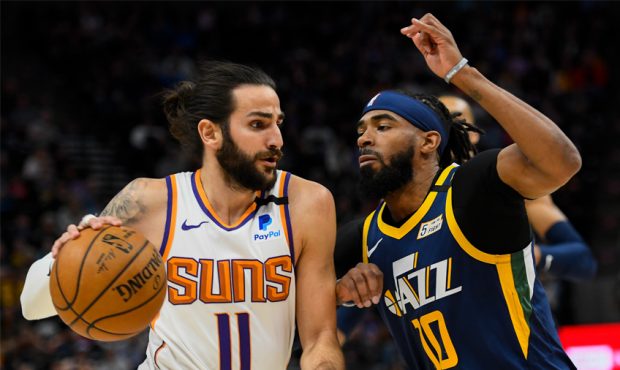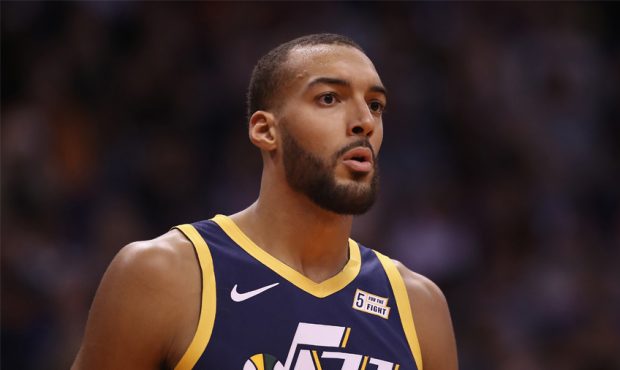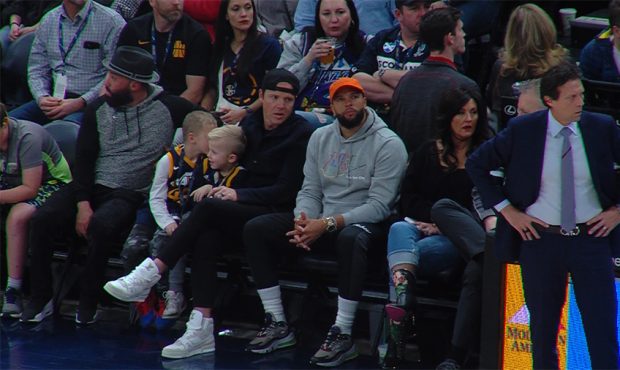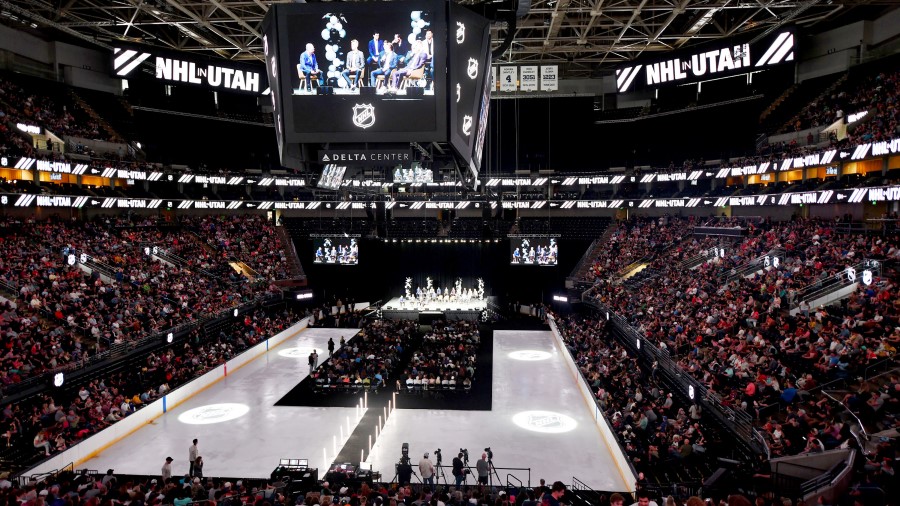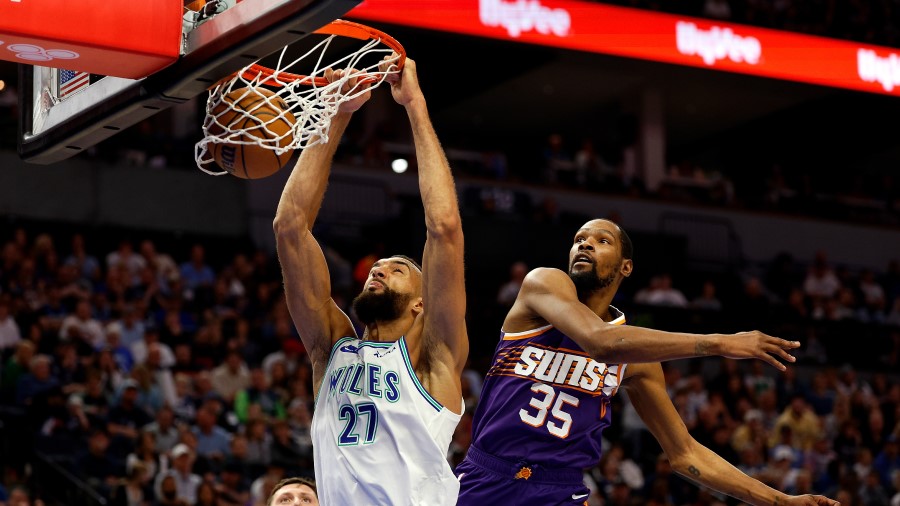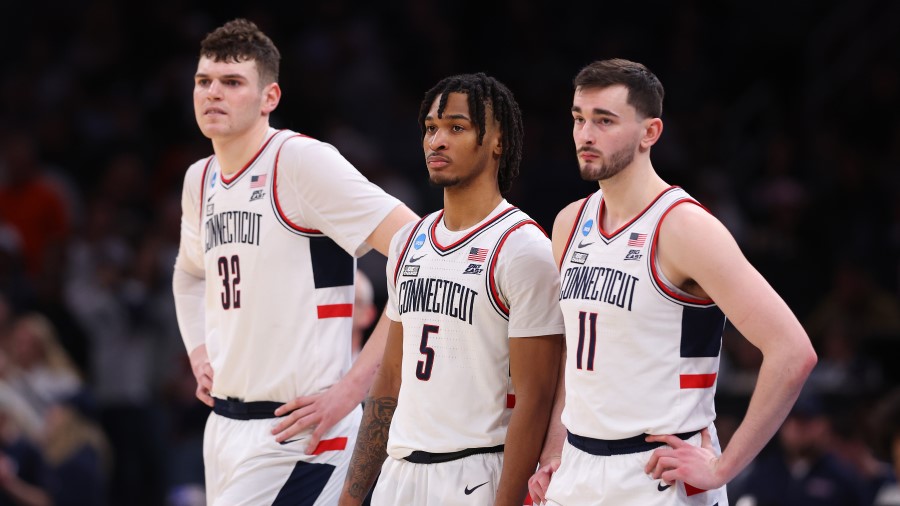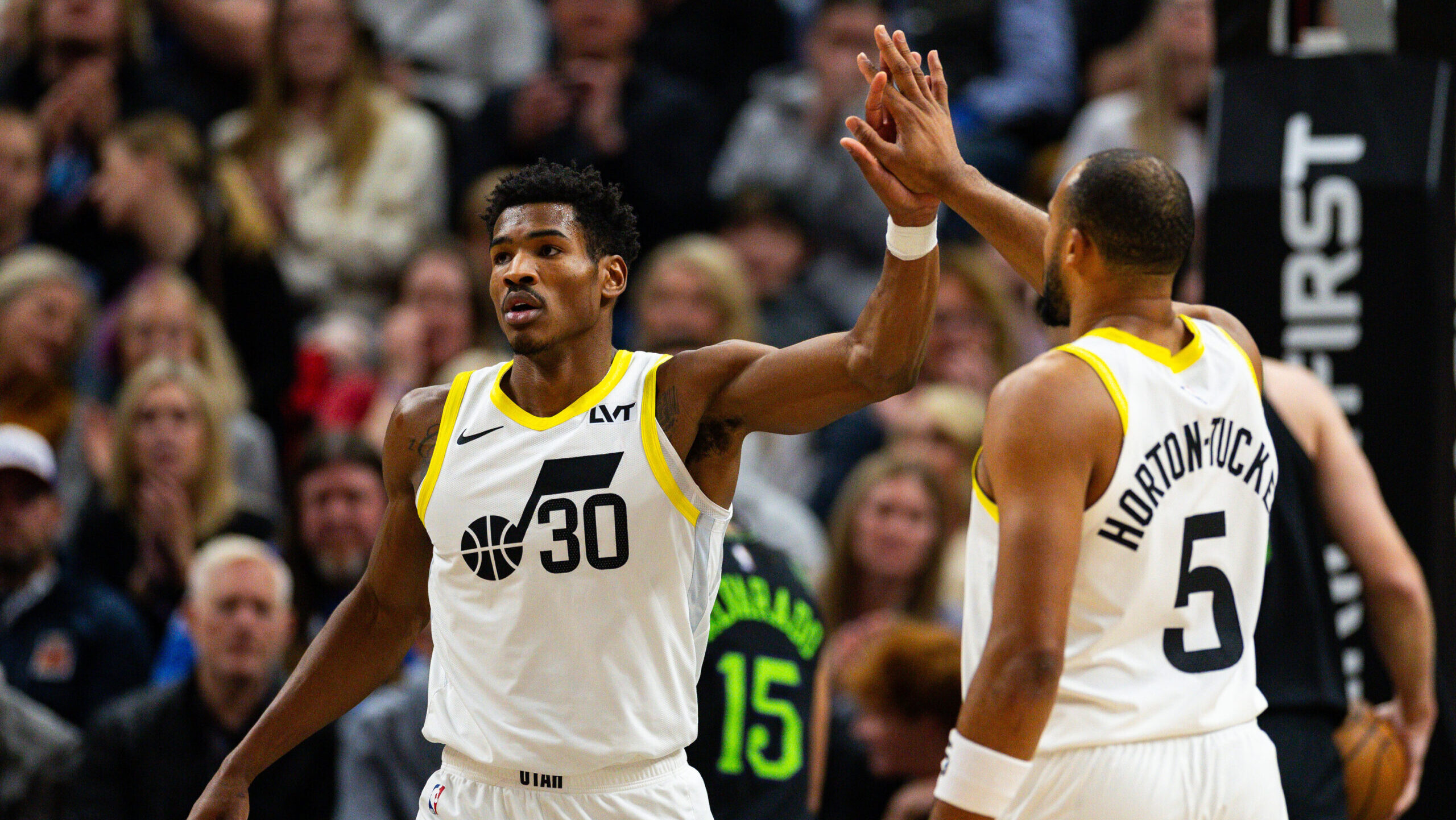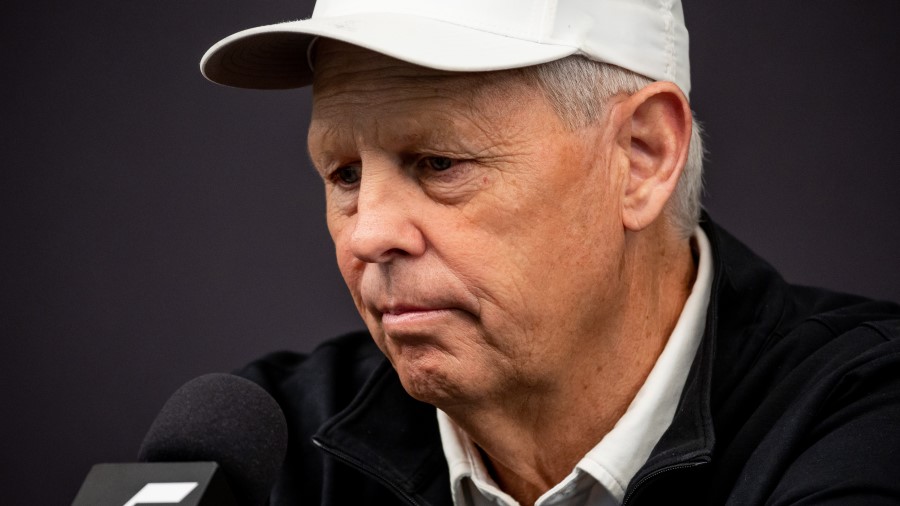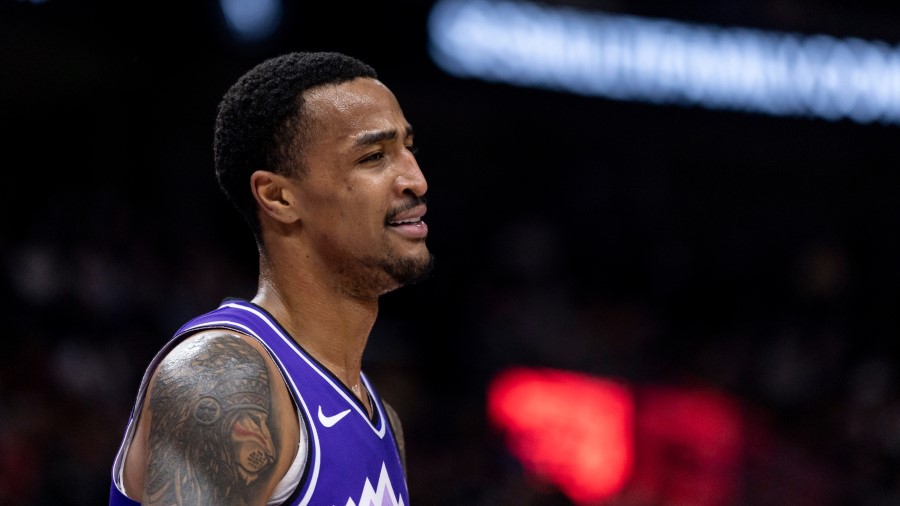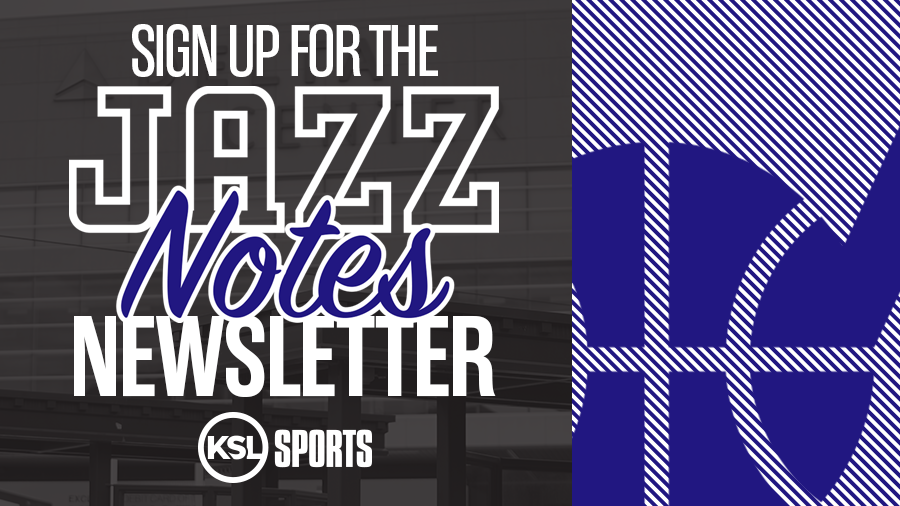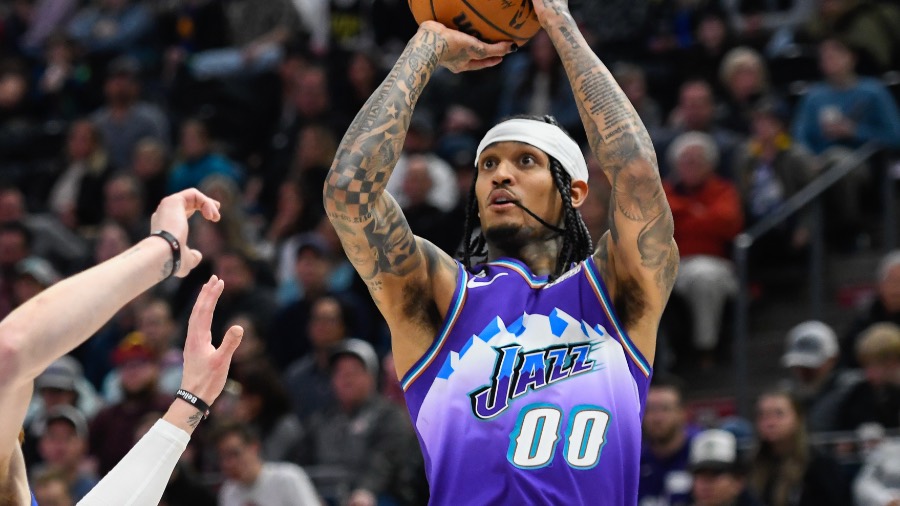Is It Too Late To Fix The Utah Jazz?
Feb 25, 2020, 12:08 AM | Updated: 12:11 am
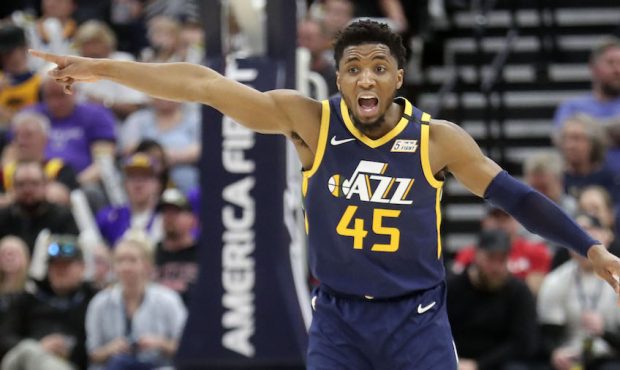
Utah Jazz guard Donovan Mitchell (45) yells to his teammates during an NBA game against the Phoenix Suns at the Vivint Smart Home Arena in Salt Lake City on Monday, Feb. 24, 2020. ( Kristin Murphy, Deseret News)
( Kristin Murphy, Deseret News)
SALT LAKE CITY, Utah – Most losses in the NBA are easy to understand. The most common denominator is the more talented team wins the game. From there, losses can usually be contributed to playing on the road, playing with less rest, running into an unusually hot-shooting team, or simply having an off night offensively. In a league in which most of the 30 teams suffer at least 20 losses a season, the overwhelming majority can be attributed to one of those five scenarios.
For the Utah Jazz, who lost in stunning fashion to the Phoenix Suns Monday night, none of those reasons can be realistically applied, and the team is left searching for answers when it seems the logical excuses have run dry.
The Jazz are a more talented team than the Phoenix Suns. The Jazz spent each of the last two nights in their own beds since their last game while the Suns flew cross country from Chicago to Utah. While the Suns had a hot shooting night from a percentage standpoint, they weren’t asked to hit any particularly difficult shots. Meanwhile, the Jazz offense was mostly fine, outside of too many turnovers, the team still managed to score 111 points, shooting better than league average from both the floor and the three-point line.
Devin Booker appreciation tweet 🙌 pic.twitter.com/0aCsAf508h
— Phoenix Suns (@Suns) February 25, 2020
Against Phoenix, the Jazz simply looked broken and it’s becoming a common theme for a team that once had hopes of a deep playoff run in the Western Conference.
The Jazz have lost three straight games, all of which have come in front of their home crowd, all three against opponents with worse records than the Jazz entering the matchups.
The Suns, as did both the Houston Rockets and San Antonio Spurs have solved the Jazz attack on both sides of the ball. Offensively, NBA teams know they can beat the Jazz primary defender, whoever it is, off the dribble and attack the paint. If they get an easy look at a layup, they take it. If Rudy Gobert rotates to help defensively, they simply move the ball to the open player and find an even more wide-open look.
If the Jazz do find a way to take away easy baskets at the rim, the opposing coach rolls out a small lineup with five shooters who can spread the floor. If Gobert doesn’t defend the perimeter, the opposing offense gets an open look from three. If Gobert vacates the paint to defend the perimeter, teams once again beat the Jazz off the dribble for a basket at the rim.
.@rickyrubio9 with his second straight double-double!
Finished off by ANOTHER Kelly slam! pic.twitter.com/0DixXWBflc
— Phoenix Suns (@Suns) February 25, 2020
On defense, teams regularly jump in front of the Jazz telegraphed passing lanes, forcing turnovers and creating easy transition baskets. When the Jazz attack the paint, opposing teams collapse the defense and either poke the ball away or trust that the Jazz will throw an errant pass that either leads to a turnover or isn’t sharp enough to lead to an open shot on the perimeter. As a result, the Jazz deadly three-point attack is rendered mostly toothless with just a little bit of perimeter defense.
Worse yet, when the team finds themselves in a funk, even spread over just a few possessions, they collapse like a house of cards and let a winnable game wash away into a disheartening loss.
Against the Suns, the Jazz built a 35-27 lead after the first quarter, the best 12 minutes stretch since returning to the All-Star break. But the Suns trusted the Jazz would default to an isolation style of basketball while continuing to attack the Jazz slow perimeter defense and had tied the game up at 62 by halftime.
After forcing just six turnovers in the first half, the Suns upped their defensive pressure in the third quarter, and forced seven turnovers over a 12 minutes span, equaling the number of made baskets the Jazz had over the same stretch.
Ricky with a season-high 7⃣ STLS tonight!
The most by a Sun this season! pic.twitter.com/z05OWF50LH
— Phoenix Suns (@Suns) February 25, 2020
The Suns turned a once 35-27 lead after one quarter into a 99-88 lead entering the final period, with the Jazz allowing 72 points over just 24 minutes.
Then, with the home crowd at their back and altitude in their favor, when the Jazz have traditionally found a way to battle their way back into games, they gave up an additional 32 points in the final period, mustering just 23 of their own, to limp to a 20 points loss.
With the trade deadline behind them and the All-Star break come and gone to rest their weary legs, the team has nowhere to look but inward to solve their potentially fatal flaws, and it comes during the most important stretch of the season.
Coach Quin Snyder looked for those answers from deep in his roster in the third quarter, turning to Emmanuel Mudiay over Georges Niang and Juwan Morgan over Tony Bradley. The change did nothing to stem the Suns attack as the team was outscored with both players on the floor.
Quin Snyder's message is very consistent. The key to the Jazz getting through this tough stretch is a collective commitment on the defensive end of the floor. #TakeNote https://t.co/S7y2rgSNOk pic.twitter.com/zrZ7P5QZpG
— Jeremiah Jensen (@JJSportsBeat) February 25, 2020
The Suns continued to outrun, out hustle, outshoot, and simply outperform the Jazz regardless of who was on the floor.
For a team that has been heavily influenced by momentum through the season, opening the year with a 13-11 record, only to win 19 of their next 21 games, before a string of five straight losses, followed by four straight wins, the Jazz have once again found themselves with a wind blowing them backward, rather than pushing at their backs.
Relying on momentum to win games in the NBA is a roll of the dice as just as easily the momentum can turn against you, as the Jazz have learned too many times this season.
Unfortunately for the Jazz, if they haven’t found a way to harness an identity beyond one that relies on the luck of momentum nearly 60 games into the season, it’s unlikely to be discovered over the final 50 days of the regular season.
The Jazz are a talented but flawed team. They know their problems, but so does the rest of the NBA. The defense needs to contain the dribble attack, but no player has been able to step up to slow the attack. They know they turn the ball over too often, but practice hasn’t eliminated bad passes.
With the season more than two-thirds of the way finished, the Jazz are just now recognizing the full weight of their problems and it may be too late to fix.

